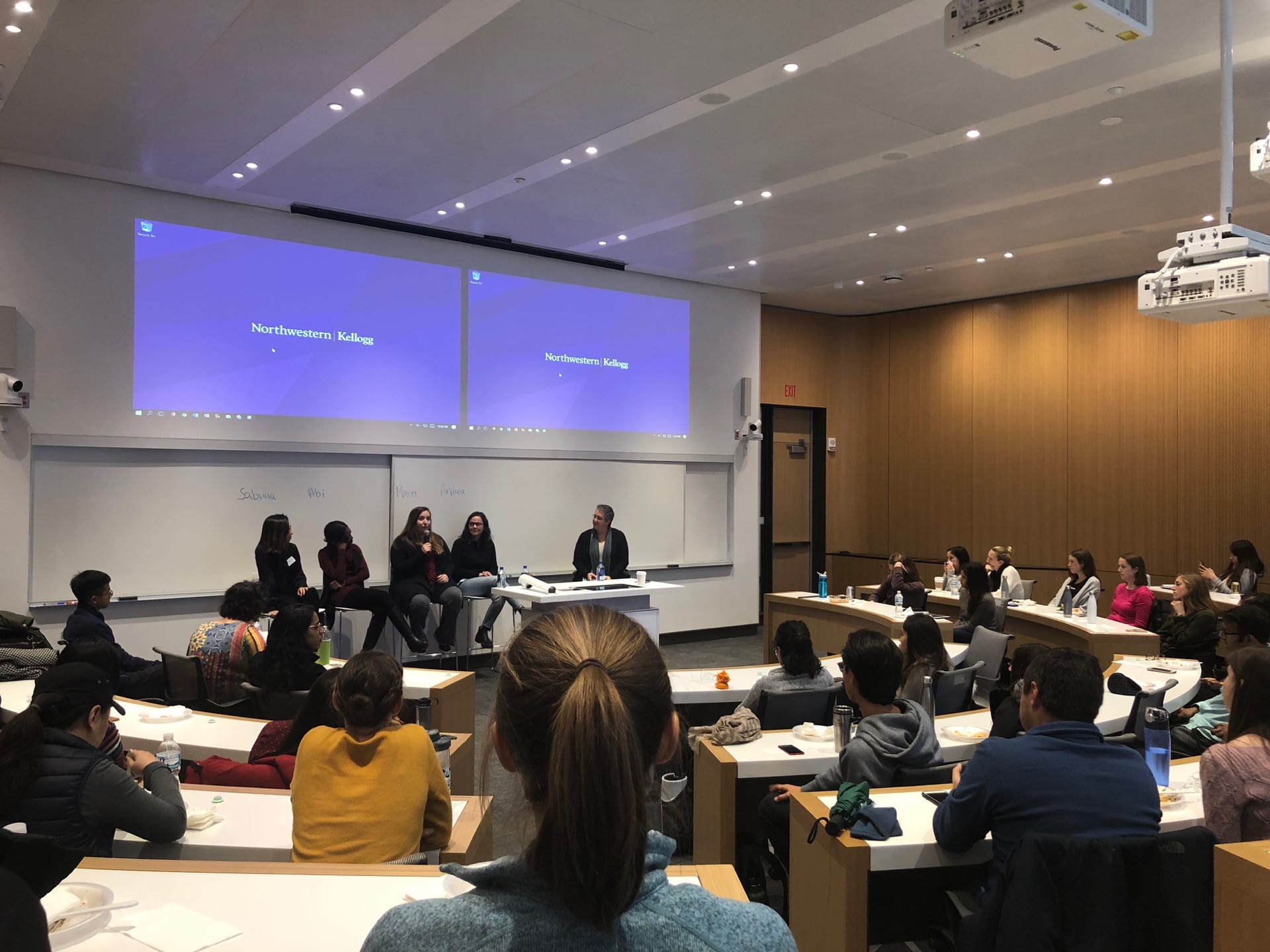WBA Presidents Reflect on Gender Equity and Alliance at Kellogg

by Ginny Lee and Noelle Bloomfield, both 2Y 2019
Kellogg’s most recent admissions class comprises 46 percent women. When stepping up to lead the Women’s Business Association, we were excited to see this progress and to have a chance to shape women’s programming during this pivotal time at Kellogg. Further, with gender issues top of mind in the media during the past year with the “Time’s Up” and “MeToo” movements, gender topics have become a necessary part of the conversation for business leaders, and thus a necessary part of what Kellogg students should be learning, exploring, and discussing as future business leaders.
In addition to facilitating dialogue on topical gender issues, one of our goals this year was to highlight and share the multifaceted experiences of women at Kellogg. Last week, we took the time to celebrate the diversity of women during Women’s Business Association week, culminating in International Women’s Day. We believe that recognition of intersectionality and diverse perspectives is critical when thinking about gender topics, and we have partnered with other affinity organizations (e.g., Pride@Kellogg) as well as the broader community (e.g., Chicago nonprofit organizations) to bring these stories to light and engage in powerful conversations.
As we look toward transitioning to the next set of Women’s Business Association leaders, we had a chance to reflect on our leadership experience and what we have learned as leaders of this organization at Kellogg. Throughout the year, our organization has sought ways to equip women with professional development skills, personal development tools, mentorship and access to networking opportunities. But we realized the need to go beyond these traditional means and tackle some of the more underrepresented issues that today’s business women face. From candid talks with all genders on the experience of women and moms in business school, pertinent fertility education, and what supportive relationships (of all natures) look like for successful individuals, we have begun addressing the formerly considered taboo topics that can truly drive change for our community.
It has become abundantly clear that the narrative has changed on what represents relevant gender programming. Regardless of gender identity, the principles of allyship and finding ways to effectively navigate and succeed in a business environment should be top of mind, and available through Kellogg programming. True equity for all in the workplace requires candid conversations on how to support underrepresented or underserved parties of all kinds, and having allies in those with more influence or innate power within an organization. Ultimately, gender equity and alliance is more than a number. We may have a class with 46 percent women, but we continue to strive for a class with 100 percent equity-focused allies for all.

